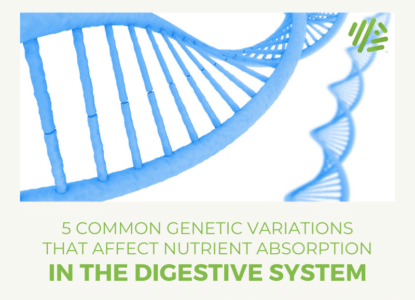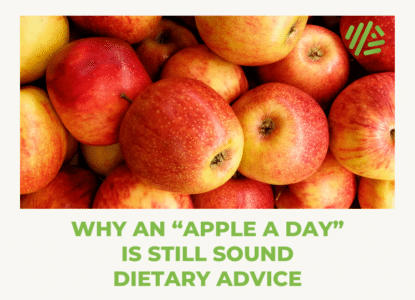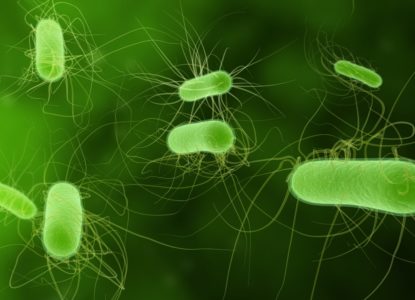Why Does Morning Sickness Happen and How Can I Make it Stop?

Contents
Why does morning sickness happen?
The truth is that nobody really knows for sure. Morning sickness may be related to changes in hormones, such as human chorionic gonadotrophin (hCG), thyroxine, and estrogen in pregnancy. It may also be linked to fluctuations in blood sugar related to changes in food consumption and anabolic hormones such as insulin and insulin-like growth factor-1 (IGF-1). It’s also possible that this common symptom is a mechanism evolved to protect the unborn fetus from potential toxins. Indeed, there is some evidence that NVP may reduce the risk of having a miscarriage, delivering preterm, or having a low birth-weight baby. 1 Unfortunately, for up to 2% of women, morning sickness is not just unpleasant and annoying to deal with, it can be so severe as to necessitate medical intervention, including feeding tubes and intravenous fluids. And, in some cases, HG (severe morning sickness) can lead to miscarriage; birth defects; electrolyte imbalance; dangerous weight loss; dehydration; nutrient deficiencies; and weakness, fatigue, and even depression. 2 3 4Who is more likely to get morning sickness?
Morning sickness might be more likely to occur in the following situations: 4- Where the fetus is female;
- Multiple pregnancy (twins, triplets, etc.);
- Where there is a family history or personal history of morning sickness;
- In individuals with a high body mass index (BMI) or who are overweight or obese;
- In individuals with a history of digestive issues and/or motion sickness;
- In individuals with a history of migraines, headaches, and/or dizziness;
- In younger birth parents; or
- In people with a history of nausea when taking estrogen-containing contraceptives.
Is hyperemesis gravidarum genetic?
A study published recently in the journal Nature Communications revealed that two genes, GDF15 and IGFBP7, are associated with a higher risk of hyperemesis gravidarum. These genes code for placental development and influence appetite regulation, and have already been associated with cachexia, a condition characterized by loss of appetite and muscle wasting. 7 A common variation in the GDF15 and IGFBP7 genes seems to increase the likelihood of HG, but only in some women, suggesting environmental influences and a role for nutriepigenetics, perhaps. Indeed, greater expression and activity of these genes, indicated by higher levels of specific proteins in the blood, has been found in people hospitalized for HG, compared to people with less severe or no morning sickness. 7 Other studies have noted that genes involved in the production of the hormone hCG and its receptors may also play a role in morning sickness. 5Reducing your risk of morning sickness
A gene-based therapy for HG may not result from research focused on morning sickness itself. Instead, researchers looking at cachexia, which is responsible for a significant number of cancer-related deaths, 8 may uncover a useful therapy first. In the meantime, to reduce your risk of morning sickness it can help to:- Achieve and maintain a healthy body weight prior to pregnancy.
- Manage blood sugar levels by eating healthy meals and snacks throughout the day.
- Getting regular exercise to support insulin sensitivity and to maintain a healthy body weight.
- Avoid foods that trigger nausea (some common culprits include meat, seafood, and leftovers, which are more likely to contain harmful chemicals, parasites, and bacteria).
- Avoid alcohol and caffeine (wean yourself off caffeine prior to pregnancy if possible; Amber wrote a great post on ways to reduce your caffeine intake that you can look at for more information, including switching to healthy decaf teas).
Natural remedies to treat morning sickness
Ginger is probably the most well-known remedy for NVP, and for good reason. A large body of research supports the use of fresh ginger, ginger tea, and ginger capsules for relieving nausea and soothing the digestive tract. In one single-blind clinical trial study, 67 pregnant women were evaluated for treatment of their nausea symptoms. An experimental group received 250mg of ginger capsules for four days, while the control group received a placebo. Those who took the ginger capsules fared much better than the placebo group in both improvement of nausea symptoms (85% vs. 56%) and decrease in vomiting (50% vs. 9%). The study concluded that practitioners may recommend 1,000mg of ginger daily to pregnant women, but it’s important for women to consult with their doctor before taking any supplements or medication. 10 Supporting better blood sugar regulation can also keep morning sickness in check. As such, it can help to eat meals and snacks that provide protein, fats, and fibre alongside a complex, starchy carbohydrate. This helps to avoid large fluctuations in blood sugar. Be sure not to skip breakfast or any other meals, even if this means eating something simple like plain crackers or toast. Regular exercise also helps support blood sugar regulation by improving insulin sensitivity.A note on prenatal supplements and nausea
Prenatal supplements can help ensure a good intake of folate, iron, omega-3 DHA (docosahexanoic acid), and other vital nutrients needed during this period of rapid growth. Unfortunately, some people experience nausea when taking prenatal formulas. If this is the case for you, try taking supplements before bedtime with a small snack, rather than with breakfast. Most prenatal supplements will include some vitamin B6, which has been shown to help reduce nausea and vomiting in pregnancy. 11 In a randomized, double-blind clinical trial comparing the effects of ginger (25omg) and vitamin B6 (40mg), along with a sugar placebo taken over four days, 120 pregnant women saw about a 61% reduction in symptoms after each supplement treatment compared to a 43% reduction after placebo alone. However, those in the placebo group also discontinued their treatment and began using other methods after their severity of symptoms did not subside. Those taking ginger capsules, however, did have a slightly higher risk of stomachache, heartburn, and increased nausea. 12 It’s important not to take too much vitamin B6, so check the level of your prenatal vitamin and talk to your health care practitioner about topping out at around 25mg three times per day to help with nausea. Do not take additional vitamin B6 without first consulting with a medical professional, and don’t take more than he or she recommends.Morning sickness supplement comparison
| Supplement | Product link | Formula | Quantity | Safety warning |
|---|---|---|---|---|
| Solaray Ginger Root Extract | View on Amazon | 250mg ginger root extract at 5% gingerols, 100mg ginger | 60 capsules | Pregnant women should consult their healthcare provider prior to use |
| Pure Science Ginger Root Capsules | View on Amazon | 700mg ginger root extract at 5% gingerols | 50 capsules | Pregnant women should consult their healthcare provider prior to use |
| Pure Encapsulations B-Complex Plus | View on Amazon | 16.7mg Vitamin B6, 100mg thiamin, 108mg niacin, 12.7mg riboflavin, 400mcg folate, 400mcg Vitamin B12, 400mcg biotin, 100mg pantothenic acid | 120 capsules | Do not overdose Vitamin B6, and be sure to consult with your healthcare provider before taking this product if pregnant |
| Thorne Research Basic B Complex | View on Amazon | 10mg Vitamin B6, 110mg thiamin, 140mg niacin, 10mg riboflavin, 400mcg folate, 400mcg Vitamin B12, 400mcg biotin, 110mg pantothenic acid | 60 capsules | Do not overdose Vitamin B6, and be sure to consult with your healthcare provider before taking this product if pregnant |




Thank you so much for reporting on HG. I’m still obsessed in hearing a solution or answer to this problem in prepgancy even though the trauma (HG in pregnancy #1) happened 15 years ago. It hurt the most that the internet had nothing on the subject back then and when family and friends said it was just in my head.
I thank Kate Middleton for being open and honest about her condition. In hindsight I wish I called my situation Nausea and Vomiting on Steroids but the brain fog from not eating stopped me from thinking clearly.
Many people I have spoken to say this situation still impacts on them emotionally 30 years later.
This article could not have been more spot on even if I had written it myself. I fit into absolutely every category you mention above.
THANK YOU
THANK YOU THANK YOU
When I first started using “No to Morning Sickness Tea” I was 7 weeks and MISERABLE all the time. When they say morning sickness, they should really say all day sickness! I went to amazon to find some relief and came across this tea- at that point anything was worth a shot! I drank it in the morning and around noon realized that I wasn’t feeling miserable! It has literally been a life saver! This has surely helped abundantly!